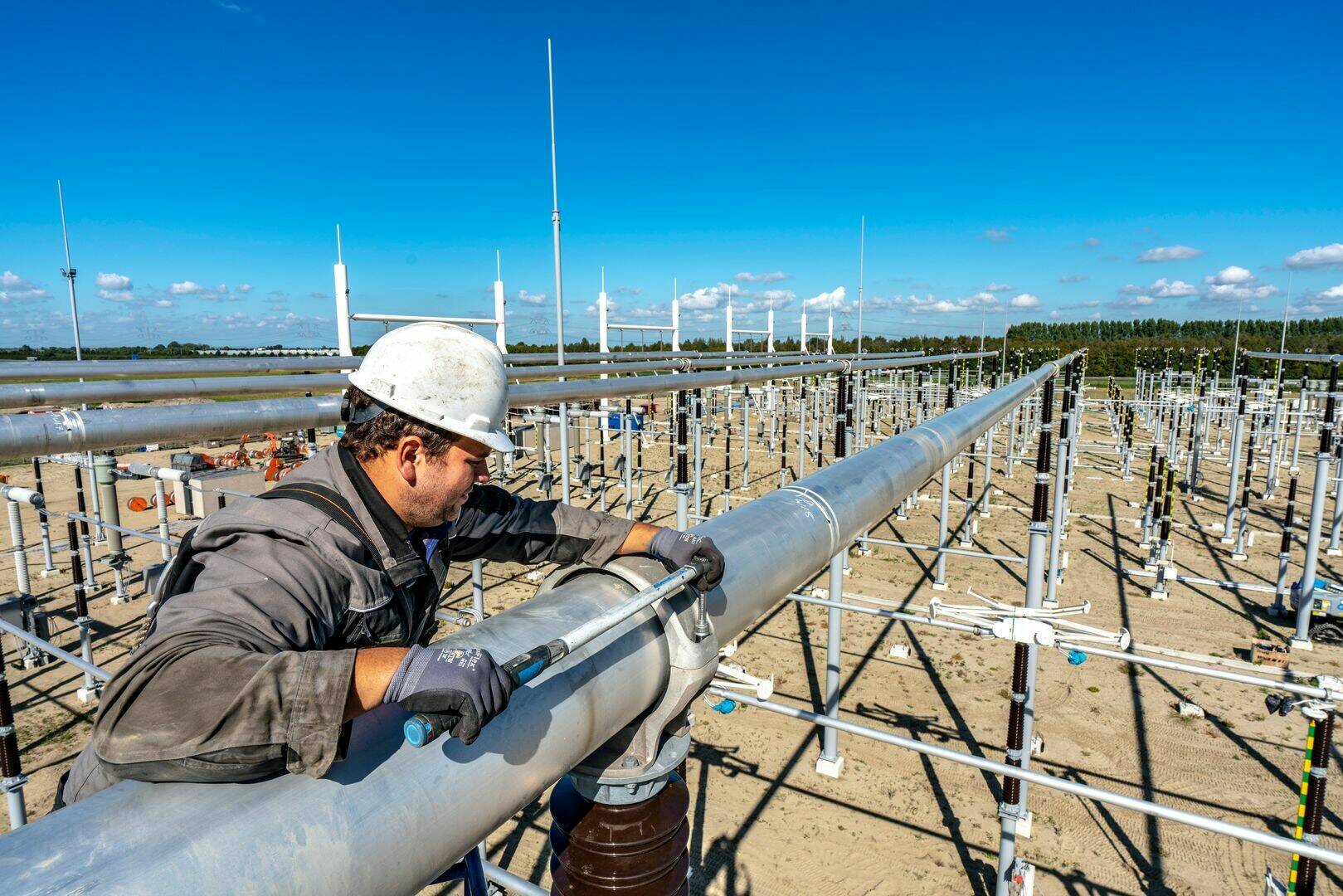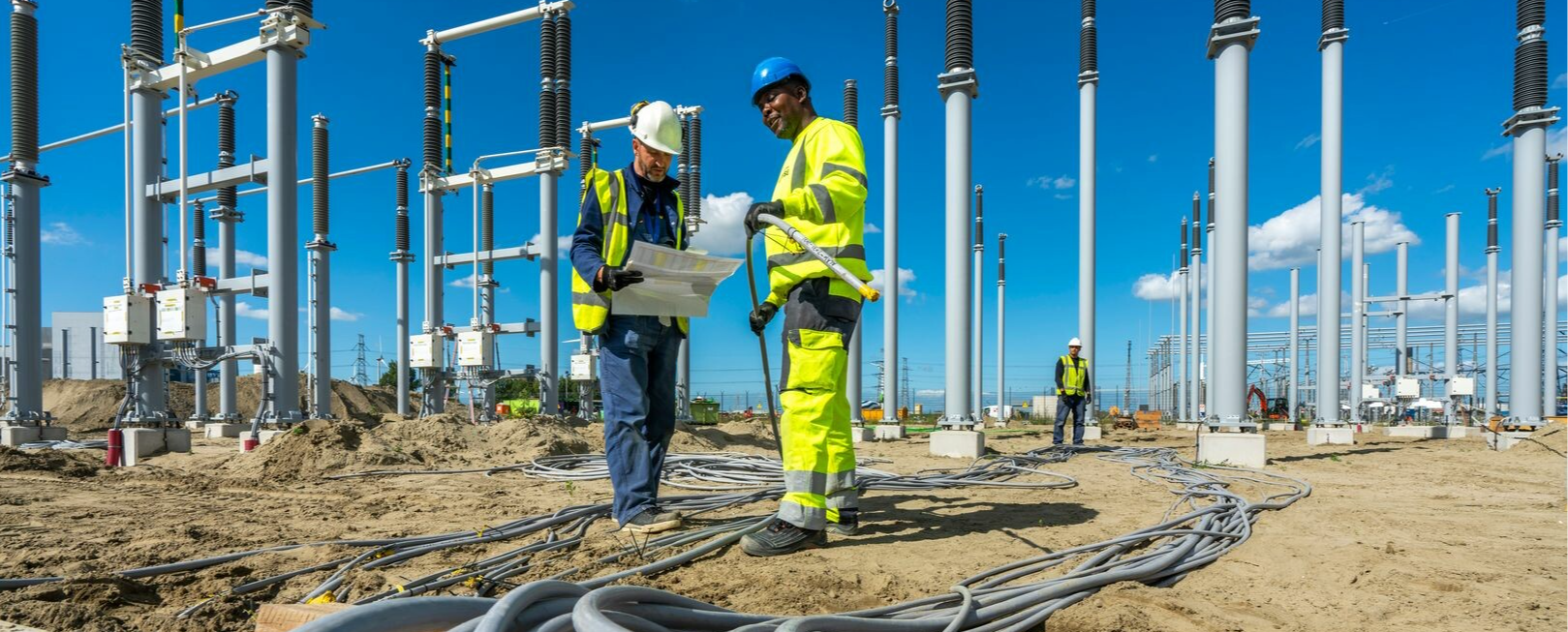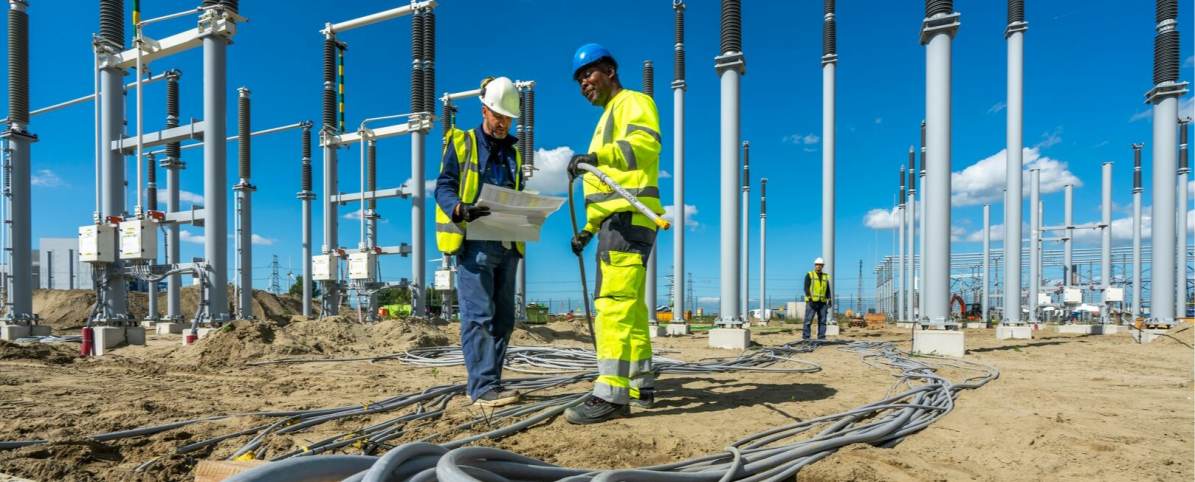


Manager Engineering Large Project Netherlands
drs. Ing. Roy Besselink

“
Modular construction within Large Projects Netherlands means that we develop and implement a standard design for 380 kV substations and pylons. That design consists of standard modules and was developed together with a number of market parties. Modular construction is crucial for the expansion of our grid. This requires integrated working on all fronts and throughout the chain. By TenneT with the partners and the partners among themselves.
It is good to realise that the work will be done differently. That applies to our own engineers, market parties, subcontractors and suppliers. But also our buyers and environmental managers, for example. Working with modules, which are fixed, makes the design, planning and execution of implementation projects easier. And faster to realise.

Engineer's work is certainly not getting boring. Precisely not. Our field of work will remain interesting in the years to come because of the sheer volume and complexity of all the work coming our way. And at the same time, in addition to this massive rebuilding of the Netherlands, we have to ensure that we transport power 24/7. That is perhaps the most challenging. The idea is to make our work simpler and at the same time more challenging. Simpler by standardising repetitive work and focusing more and more on complex, challenging project parts. By investing in modular solutions now, we can realise accelerations here in the short term. So modular construction helps with accelerating the expansions of our grid. That is critical.


Improvements, corrections or new standards can be scaled up quickly.

Complex (design) solutions are solved outside modular construction within the projects.

The design modules are approved by multidisciplinary teams. These consist of relevant disciplines within the TenneT asset management chain.

Design modules are designed integrally (in the chain and with market partners) and include all disciplines: primary, secondary, tertiary, civil, structural, telecoms, EMC & earthing and transmission lines.

We develop modular design solutions in one place. There, they are managed and made available. This eliminates ambiguities about working methods and decisions.

Across the chain, the use of design modules is the norm.


Less rework

Safety

Speed

Smart and efficient deployment of people and materials

Uniformity and clarity not only in the construction phase, but also for management and government

Clarity for landowners right from the planning phase

Simplification - acceleration of the procurement process

Investment plans
Publication

Target Grid
Background information

Manager Engineering Large Project Netherlands
drs. Ing. Roy Besselink

Investment plans
Publication

Target Grid
Background information

Improvements, corrections or new standards can be scaled up quickly.

Complex (design) solutions are solved outside modular construction within the projects.

The design modules are approved by multidisciplinary teams. These consist of relevant disciplines within the TenneT asset management chain.

Design modules are designed integrally (in the chain and with market partners) and include all disciplines: primary, secondary, tertiary, civil, structural, telecoms, EMC & earthing and transmission lines.

We develop modular design solutions in one place. There, they are managed and made available. This eliminates ambiguities about working methods and decisions.

Across the chain, the use of design modules is the norm.

Modular construction within Large Projects Netherlands means that we develop and implement a standard design for 380 kV substations and pylons. That design consists of standard modules and was developed together with a number of market parties. Modular construction is crucial for the expansion of our grid. This requires integrated working on all fronts and throughout the chain. By TenneT with the partners and the partners among themselves.
It is good to realise that the work will be done differently. That applies to our own engineers, market parties, subcontractors and suppliers. But also our buyers and environmental managers, for example. Working with modules, which are fixed, makes the design, planning and execution of implementation projects easier. And faster to realise.
Engineer's work is certainly not getting boring. Precisely not. Our field of work will remain interesting in the years to come because of the sheer volume and complexity of all the work coming our way. And at the same time, in addition to this massive rebuilding of the Netherlands, we have to ensure that we transport power 24/7. That is perhaps the most challenging. The idea is to make our work simpler and at the same time more challenging. Simpler by standardising repetitive work and focusing more and more on complex, challenging project parts. By investing in modular solutions now, we can realise accelerations here in the short term. So modular construction helps with accelerating the expansions of our grid. That is critical.



Less rework

Safety

Speed

Smart and efficient deployment of people and materials

Uniformity and clarity not only in the construction phase, but also for management and government

Clarity for landowners right from the planning phase

Simplification - acceleration of the procurement process

“


